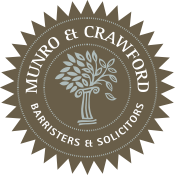
Advantages and Disadvantages of Joint Ownership for Will Planning
Many clients come to us asking about whether joint ownership is the right choice for them in terms of estate planning. Here are the basics to know about joint ownership for will planning.
What is Joint Ownership?
Joint ownership is exactly what it sounds like: the legal ownership of a piece of property by two or more individuals at the same time. There are two different types of joint ownership arrangements.
Different Types of Joint Ownership: Joint Tenancy & Tenants in Common
Joint Tenancy
Joint tenancy is when two or more people own a property and each own equal portions of that property. In joint tenancy, each co-owner has an equal right to the use of the property. In the event that a co-owner passes away, then their share of ownership automatically goes to the remaining owner(s). If multiple owners remain, the deceased’s share of ownership is split equally between them. The deceased owner’s share does not become a part of their estate.
Joint tenancy is usually the preferred type of joint ownership for married couples.
Advantages of Joint Tenancy
- Avoid probate
- Save money on legal fees
- Prevent challenging of the will
Disadvantages of Joint Tenancy
- Subject to all owners’ circumstances, not just your own
- Lack of flexibility regarding what will happen to your share of the property when you die
Tenants in Common
Tenants in common is when two or more people own a property, but the property is not divided equally among the co-owners. For example, one person may own ¼ of the property while their co-owner owns ¾ of the property. In a tenants in common arrangement, if one co-owner dies, then their portion of the property becomes part of their estate and does not automatically go to the remaining owner(s). This means that the deceased’s portion of the property will need to go through probate and will be distributed to the deceased’s beneficiaries as outlined in their estate plan.
Advantages of Tenants in Common
- You have the power to choose beneficiaries other than your co-owners to inherit your share of the property
- More flexibility–you can add or remove beneficiaries if you wish
- Your share is subject only to your own circumstances
Disadvantages of Tenants in Common
- Probate and legal fees apply
- There is the potential for challenging of the will
Whether joint ownership is the best choice for you or not depends on your individual circumstances. If you want help determining whether joint ownership is right for you or which type of joint ownership fits your situation, get in touch with our experienced wills and estates lawyers today.






Write a comment: